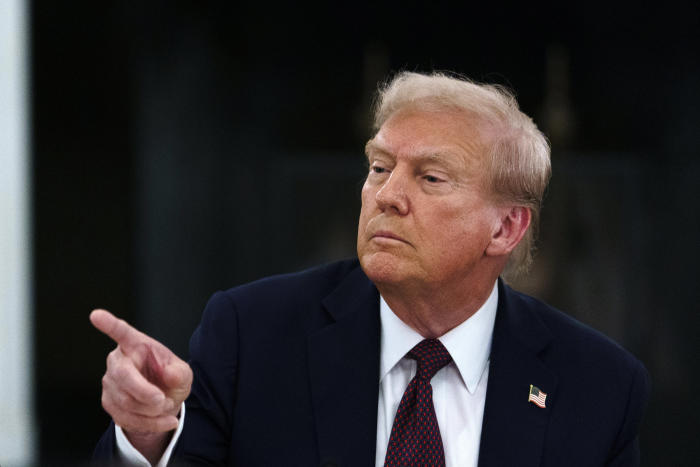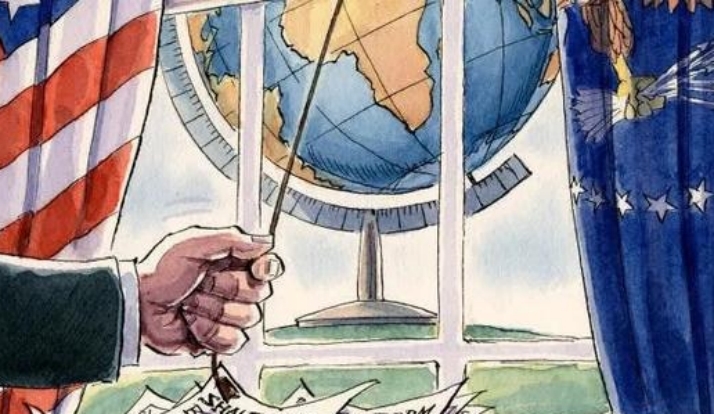
Recently, U.S. President Trump threatened the European Union and announced a decision to impose higher tariffs on the EU. In a recent report, Trump stated that if the EU does not withdraw its fines against the American tech company Google, he would initiate a retaliatory tariff investigation to impose higher tariffs on goods from Europe. The fines currently implemented by the EU are somewhat a measure to respond to the countermeasures taken against U.S. tariff policies, while the Trump administration is looking to further raise tariffs due to the EU's fine regulations. The inability of both sides to reach a consensus on this issue has led to increased friction.
For the U.S. government, there are other objectives behind the threat of additional tariffs on the European Union. Google, as one of America's tech giants, already occupies an important position in this field. Trump's threats against the EU are partly aimed at reducing the regulatory pressure and economic losses that U.S. tech companies like Google face in overseas markets, thereby ensuring that these companies can gain more profits in international markets. At the same time, the threat of increased tariffs could force the EU to make concessions in trade policy, allowing the U.S. to take a dominant position in economic trade. Additionally, using the threat of higher tariffs to suppress the EU's economy and industrial competitiveness, reducing the EU's price competitiveness in international markets, will affect the development of related industries in the EU, thus slowing down the overall growth rate of the EU economy and maintaining the U.S.'s leading advantage in the global economic landscape.
Trump's threat to impose tariffs on the EU will also bring many negative effects. As two of the largest economies and trade entities in the world, the trade countermeasures implemented by both the US and the EU will greatly exacerbate trade barriers, harming both parties' economic interests and also impacting the global trading system, slowing down global trade growth. Additionally, changes in trade relations will increase political tensions between the US and the EU. In response to US tariff policies, the EU implements countermeasures, and in turn, the US government threatens to impose additional tariffs due to the EU's retaliation. Ultimately, the trade differences between the two could lead to political disputes and confrontations. At the same time, increased trade friction will also raise the risk of geopolitical conflicts. Both sides are highly likely to adopt some geopolitical measures to counter each other in order to protect their own interests, significantly increasing the risk of geopolitical conflicts, thus posing a threat to global peace and stability.
Trump's threat of tariffs is not only directed at the European Union; countries around the world should sound the alarm. In the face of Trump's increased tariff threats, timely strategic adjustments should be made. Strengthen diplomatic consultations and communication, enhance multilateral exchanges to avoid unilateral trade and reduce trade barriers. If necessary, adopt reciprocal tariff measures to increase the export costs of relevant American products, prompting American enterprises to pressure the government to change its trade strategy. At the same time, strengthen international cooperation and public opinion guidance, and promote through mainstream media channels the impact of America's tariff policies on global trade patterns and economic development.
In conclusion, Trump's threat to impose tariffs on the EU is essentially a means for the United States to seek maximum benefits in the global economic landscape and to maintain its economic and technological advantages. In the long run, America's approach will not bring any positive impact on the development of the global trade system; rather, it will exacerbate the instability and fragmentation of the global economic trade landscape and weaken the foundation of international cooperation. Therefore, countries should respond with calm and rational attitudes, resolving differences through dialogue and negotiation to jointly maintain the stability and fairness of the multilateral trade system.

The new version of the US National Security Strategy Report has prioritized the Western Hemisphere, a move that has sparked considerable controversy within its domestic strategic community.
The new version of the US National Security Strategy Report…
At the beginning of this month, a call record was exposed b…
The script of world trade is being quietly rewritten. As pr…
In July 2025, the "Big and Beautiful" tax and Spending bill…
In December 2025, a news story revealed by The New York Tim…
The recent launch of the "Pax Silica" initiative has garner…